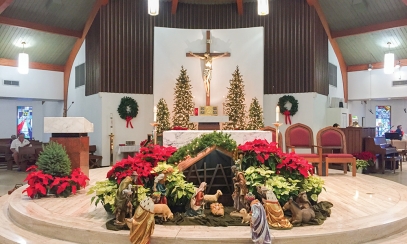
What Are Indulgences?
Getting your Trinity Audio player ready...Question: Fr. Joe, during the Jubilee Year, there seems to be a lot of talk about indulgences. Weren’t indulgences one of the causes of the Protestant Reformation? What is the Catholic teaching on indulgences, and how do I get an indulgence?
Question: Fr. Joe, during the Jubilee Year, there seems to be a lot of talk about indulgences. Weren’t indulgences one of the causes of the Protestant Reformation? What is the Catholic teaching on indulgences, and how do I get an indulgence?
Answer: You are correct that indulgences have been a source of controversy, particularly during the Reformation, when their abuse, including the selling of indulgences, led Reformation Theologians to split with the Catholic Church. However, the Church teaches indulgences as a means to encourage conversion and atonement for sin, aligned with the Sacrament of Penance (cf. Catechism par. 1471-1479)
Indulgences flow from the Church’s authority, given to Peter and the Apostles, to bind and loosen sins. They are a way to repair the damage sin causes not just to the sinner but also to God’s created order and the Church’s communion. Sin separates us from God, and while the Sacrament of Penance restores us to grace, it doesn’t fully repair all the damage sin causes. This is why the Church teaches that sin incurs temporal punishment, which requires reparation through purpose of amendment and a suitable penance, for example, prayer, fasting, and acts of charity.
This need for atonement is rooted in Scripture and has been practiced by the Church for its earliest days, including the Christian tradition of praying for the purification of one’s departed loved ones.
Through indulgences, the faithful can make reparation for their own sins or those of the deceased. Indulgences are linked to the Church’s treasury of grace, which includes the merits of Christ, the intercession of the Virgin Mary, and the Communion of Saints.
These holy practices help guide Christians toward conversion of heart and deeper communion with Christ and his Church.
The Jubilee Year is an occasion for spiritual renewal, drawing on Christ’s message of liberation and healing. It is a reminder that the Gospel must be lived and preached and that believers are called to actively participate in the Christ’s work of redemption by seeking holiness and the forgiveness of sins.
Indulgences, when properly understood, are not a means of escaping sin’s consequences but an invitation to spiritual transformation. The conditions for receiving an indulgence emphasize genuine conversion:
▪ Perform a pious act—such as prayer, pilgrimage, or an act of charity—to atone for one’s sins or the sins of the departed.
▪ Go to Confession and receive the Eucharist in a state of grace, ideally within a week of performing the pious act.
▪ Pray for the intentions of the Pope—this expresses communion with the Church and its mission.
In conclusion, the practice of indulgences is a call to conversion, not a form of “magic” or “shortcut” to salvation. Catholics are encouraged to approach indulgences sincerely, seeking to deepen their relationship with Christ and live out the Gospel in every aspect of their lives. The Jubilee Year is an opportunity to renew this understanding of indulgences and embrace God’s grace through the Church’s penitential practices.
Those completing visits to the six official places of pilgrimage within the diocese during the jubilee year and meet the conditions, will receive an indulgence. Click here for more information about our diocesan pilgrimage sites.



